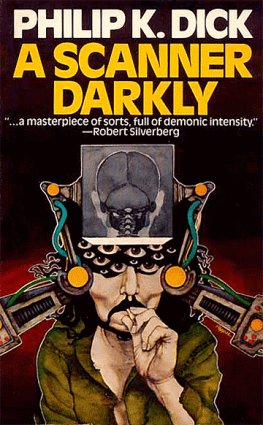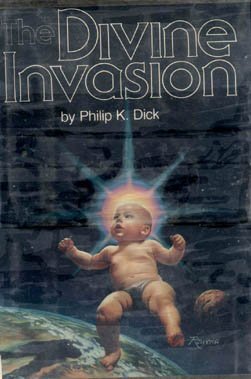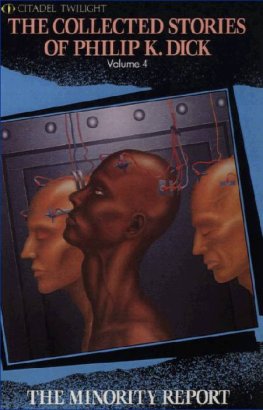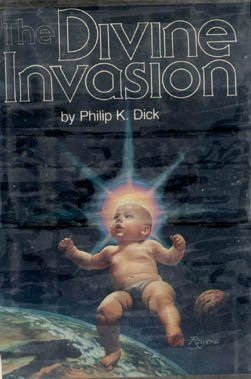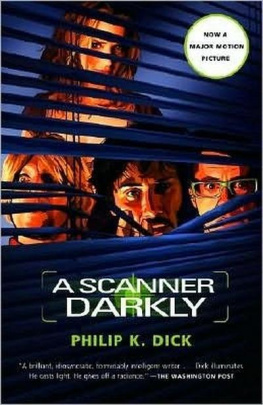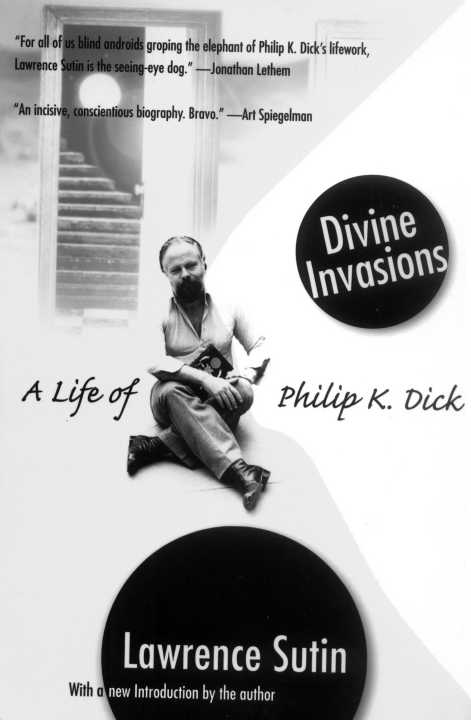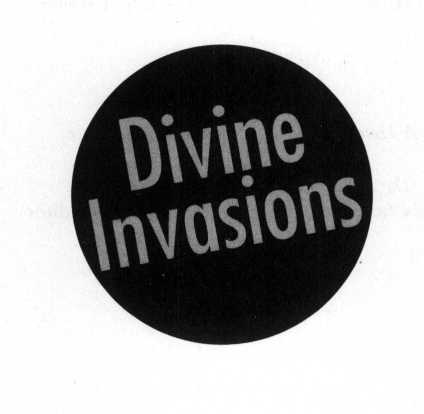ALSO BY LAWRENCE SUTIN
Do What Thou Wilt: A Life of Aleister Crowley
A Postcard Memoir
Jack and Rochelle:
A Holocaust Story of Love and Resistance
The Shifting Realities of Philip K. Dick: Selected Literary and Philosophical Writings (editor)
Divine
Invasions
Lawrence Sutin






To my good and loving parents, Jack and Rochelle Sutin
ACKNOWLEDGMENTS
The research and writing of this book proved to be an adventure beyond all initial expectations. Those who regard Philip K. Dick's probings into "What is Real?" as mere metaphysical quibblings have never undertaken to write a full account of a life.
I am indebted to so many persons who extended me time and consideration that it seems ungrateful to single out a few for special thanks. But I must mention those whose support was most vital. My agent, Dorothy Pittman, diligently marketed my proposal at a time when those "in the know" declared that a biography of Philip K. Dick was a commercial impossibility. Dorothy was also, for me, the perfect readerone who dreams along with the text. My editor, Michael Pietsch, took the risk of purchasing the book and, in his labors on the manuscript, respected my style and intentions while constantly spurring me to greater clarity and depth. Paul Williams, the literary executor of the Philip K. Dick Estate, provided all the cooperation a biographer could ask for; his sole concern was that, insofar as possible, the truth be told. Anne Dick gave vital support by granting me numerous long interview sessions and access to her excellent book Search for Philip K. Dick. Tessa Dick, Nancy Hackett, and Kleo Mini all graciously responded to my interview queries on their married lives with Phil. Laura Coehlo and Isa Hackett, Phil's daughters, similarly extended their cooperation. Tim Powers, Phil's good and true friend, unstintingly shared his memories, journals, and personal contacts. Joseph Morris, my good and true friend, shared the vision of this book with me throughout.
I interviewed well over one hundred persons who knew Phil or possessed information about him, and I thank all who-out of love and respect for Phil-took the time to talk or write to me. A few of these persons shall, by their own wishes, go nameless here. All errors and omissions in the text are, of course, solely my responsibility. But I can extend my most heartfelt thanks to: Gerald Ackerman, Karen and Poul Anderson, D. Scott Apel, Alexandra Apostolides, Chris and Greg Arena, Lawrence Ashmead, Charles Bennett, James Blaylock, Hatte Blejer, Charles Brown, Jayne Brown, Mildred Downey Broxon, Dr. Harry E. Bryan, Harry and Nita Busby, Carol Carr, the late Terry Carr, Loren Cavit, Lynne Cecil, Richard Daniels, Crania Davis, Thomas Disch, Dick Ellington, Harlan Ellison, Gladys Fabun, Hampton Fancher, Tim Finney, Pat Flannery, James Frenkel, Russell Galen, Evelyn Glaubman, Cynthia Goldstone, Sherry Gottlieb, Ron Goulart, Iskandar Guy, Michael Hackett, Linda Hartinian, David Hartwell, Linda Herman (Librarian, Special Collections, California State University at Fullerton), Neil Hudner, Mark Hurst, Honor Jackson, K. W. Jeter, Dr. George Kohler, Jerry Knight, Dean Koontz, Jerry Kresy, Gwen Lee, Ursula K. Le Guin, Linda Levy/ Taylor, Miriam Lloyd, Richard Lupoff, Vincent and Virginia Lusby, Michelle McFadden, Willis McNelly, Steve Malk, Merry Lou Malone, Barry Malzberg, David May, Ann Montbriand, Bernie Montbriand, Margaret Nearing, Kirsten Nelson, J. G. Newkom, Nicole Panter, David Peoples, Juan and Su Perez, Serena Powers, J. B. Reynolds, Alan Rich, Gregg Rickman, Leon Rimov, Betty Jo Rivers, Gregory Sandow, William Sarill, Doris Sauter, Donald Schenker, Tom Schmidt, Robert Silverberg, Joan Simpson, John Sladek, Barry Spatz, Art Spiegelman, Norman Spinrad, Nit Sprague, the late Roy Squires, Lou Stathis, E. M. Terwilliger, J'Ann Tolman, Ray Torrence, Jeff Wagner, Michael and Susan Walsh, Mary Wilson, Robert Anton Wilson, William Wolfson, Richard Wolinsky, Donald Wollheim, and Roger Zelazny.
My greatest debt is to the courageous spirit of Philip K. Dick.
Lawrence Sutin
Minneapolis
May 1989
CONTENTS
xi
I
Chapter 1: 11
Chapter 3: 45
Chapter 4: 66
Chapter 5: 97
Chapter 6: 119
Chapter 7: 145
Chapter 9: 187
Chapter 11: 234
PREFACE BY LAWRENCE SUTIN
In the seventeen years since this biography first appeared, the reputation of Philip K. Dick has grown ever more widely. The explanation seems, on first thought, evident: the ongoing adaptation of Dick's works into movies at an astonishing rate exceeded only by Stephen King. But Stephen King is a prolific writer of bestsellers and still alive. Philip K. Dick has been dead for more than two decades, and none of his books ever sold particularly well when he was living. Further, the movies made from Dick's works, with the exception of the first of them, Blade Runner (1982), have been dreadful. Total Recall made lots of money, but Arnold Schwarzenegger did not so much as attempt to portray a Philip K. Dick protagonist-one who saves the world, not with blazing Uzis, but through empathic awareness of its suffering and perceptive insight into its ultimate irreality. The rest, from Impostor to Paycheck, succeed in doing what Dick so rarely did: bore his audience.
There must be a reason why Hollywood keeps anteing up for the rights to Dick's stories and novels. For there are still more film adaptations on the way, including a forthcoming version of A Scanner Darkly (1977), and here's hoping they're better than their predecessors. The point remains, however, that the steadily growing numbers of readers of Philip K. Dick's works-nearly all of which were out of print at the time of his death and nearly all of which are back in print today-are buying those works not because of the movies but rather because of the exceptional artistry and brilliance of Dick the writer. The film producers who today pay seven figures for stories that Dick originally sold to the pulps in the early fifties for two figures recognize that artistry and brilliance, even if they can't always transfer them to the screen.
We're getting to the heart of the matter now. The international status that Dick enjoys today is based upon the widespread recognition by readers that what they find in the works of Philip K. Dick cannot be found in the works of other writers, though would-be imitators abound. But Dick cannot be imitated, for his visions were not only intricately conceived but also passionately inhabited by him as he wrote. There are many minds that possess the ability to think up interesting "alternate worlds." But there are few indeed that can immerse themselves into those "alternate worlds" and proceed to inhabit them with a range of believably flawed and desperate and soulful characters who turn out so closely to resemble all of us who live in our "real worlds" that we begin to wonder whether anything is "real" in quite the way we thought it was.


